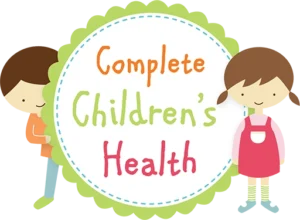Children can often be more anxious than adults, as every experience they have is new to them. Depending on the child, their ability to adapt to different circumstances varies. Anxiety is a normal reaction to stress and can be beneficial to children at times, depending on the circumstances.
Some parents may not even be aware that their child is anxious and to some, is it self-evident.
Some of the signs to look out for are: 
- finding it hard to concentrate
- not sleeping, or waking in the night with bad dreams
- not eating properly
- quickly getting angry or irritable, and being out of control during outbursts
- constantly worrying or having negative thoughts
- feeling tense and fidgety, or using the toilet often
- always crying
- being clingy
- complaining of tummy aches and feeling unwell
- shaking
- hiding
- cant make decisions
- frustrated
Different methods work for different children and here are a few that might help:
Give your child a hug – sometimes all a child needs is a hug and to tell them everything will be all right. Knowing that you are there and supporting them will help relieve their anxiousness. Knowing you love them unconditionally and are there for them no matter what. Acknowledge their feelings – don’t dismiss them.
Try “Heavy work”—like doing wall push-ups, climbing a jungle gym, carrying a loaded backpack, pushing a vacuum or pulling a wagon—can help kids focus and regulate their emotions.
Or try physical exercises that “cross the midline” of the body: wiping a table with one hand, walking in a figure eight, doing windmills with their arms. These moves “can help reset the brain” and enable kids to think more clearly and logically. Doing it with them could even provide some comic relief.
Regulated breathing helps calm anxiety. Have your child slowly breathe in and hold it for 4 seconds then release and keep repeating until they are more relaxed. Or try to have the child pretend to blow up a balloon, they blow into the balloon for 4 seconds, hold the balloon and blow again.
Remember old fashioned diaries? They were beneficial, as you get to write down all your fears – and hopes – diaries were a form of release, letting go, and then you re-read them months or years later and look at what you wrote in disbelief as you have moved on from those worries. So have your child write down all of their anxious thoughts. There are a couple of things you can do – save them to bring out later or have the child tear them up as a way of removing these thoughts and feelings and having control over them too.
Cognitive behavioural therapy (CBT) is a talking therapy that can help your child manage their anxiety by changing the way they think and behave. It can also involve creative visualisation.
It is usual for children to be anxious at various stages in their lives, but by being aware of it, finding successful ways of dealing with it are the best ways to progress. Seeking professional help for your child can also be of benefit.
